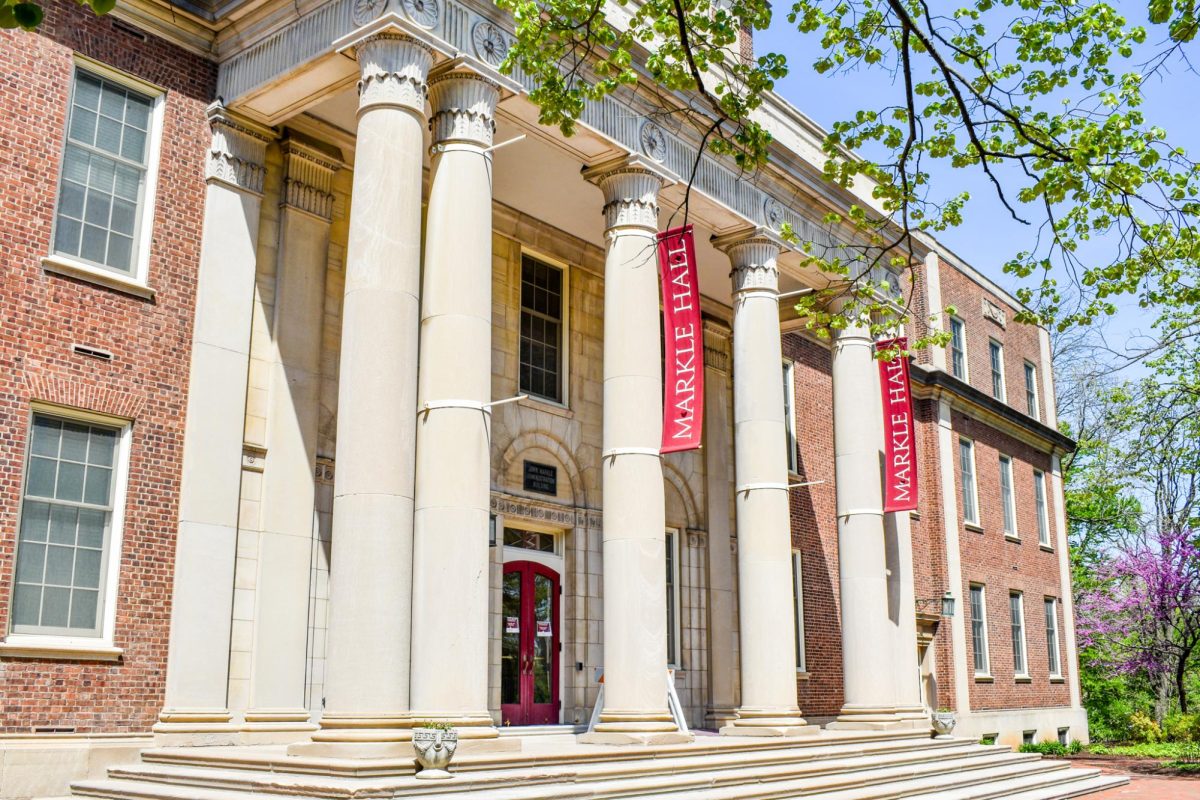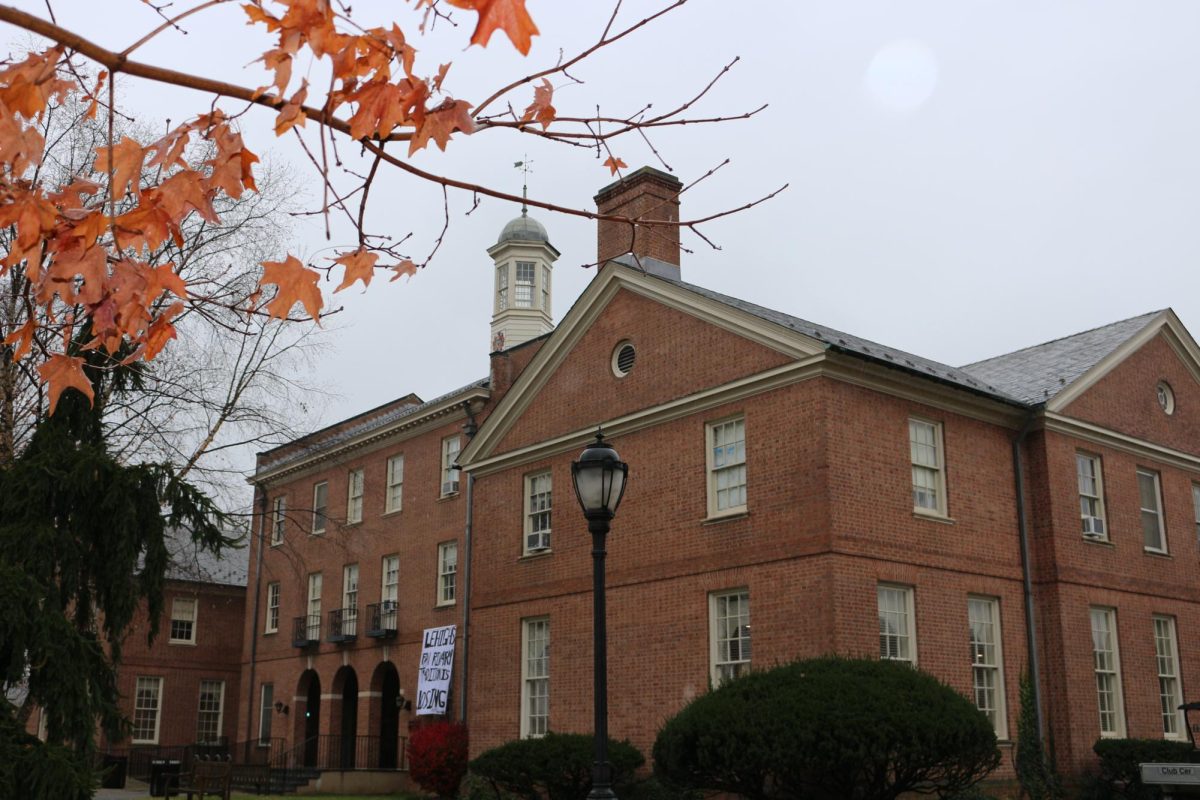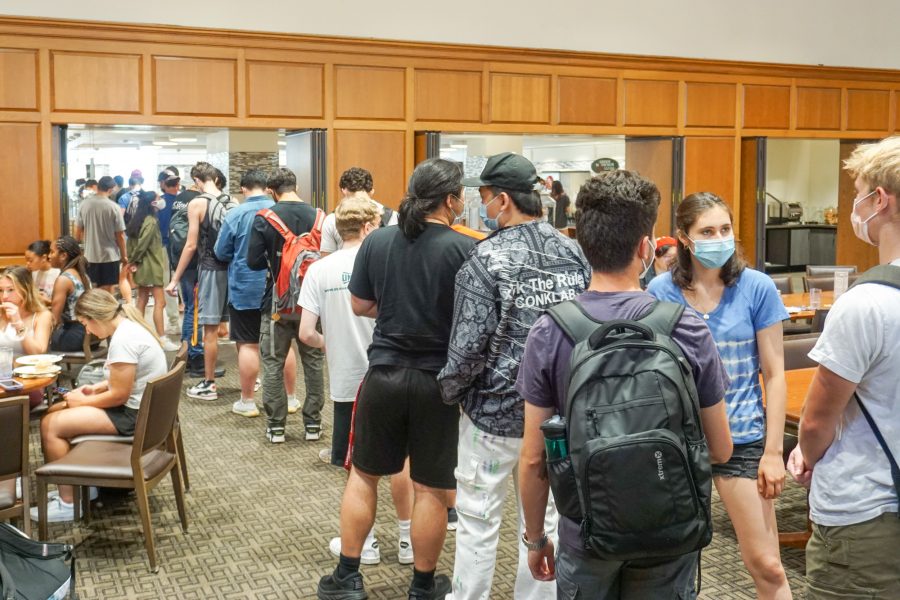Any student who has been packed in Marquis Hall or Gilbert’s Cafe during the lunch rush has seen Lafayette’s labor shortage problem in action.
“Our commitment still is providing fresh daily options,” Christopher Brown, general manager of Bon Appétit, the college’s food service provider, explained. “But some of those goals are getting harder and harder to reach than ever before. We’re having our biggest difficulty staffing all our venues for the extended hours that we’ve reopened back to.”
According to Brown, dining services is currently 60 employees short of the 260 required to operate for a full campus of students.
This past June dining services was 105 employees short.
“We started hiring in late June, early July. Typically, we don’t have a need to start our hiring campaigns until August…So it started very early this year,” Brown said. “We hit the ground running hard with in-person job fairs, virtual job fairs, recruitment and sign-on bonuses for new hires.”
However, even Bon Appétit’s intensified hiring campaign this year was not able to save the college from the labor shortage problem that is affecting the hospitality industry not only on a national scale, but also worldwide.
“It is nationwide, but it’s even global,” Economics professor Matthew Larsen said. “They have the same problems in the UK and Germany. It’s not unique to the US, and it’s not unique to Lafayette. No one’s really sure why or if it’s something that will go back to normal.”
The problem is so wide-scale that even if dining services were to fill in all their open positions by tomorrow, this would likely not solve all their problems. Brown explained that many of Bon Appétit’s vendors are having difficulty hiring truck drivers, which causes “product delays, product shortages and product not even making it to campus on some days.”
Larsen explained that labor shortages occur when there are “more jobs available than people who want to work them.” It primarily affects low-paid workers who are unable to do their jobs remotely. Most positions in the food service industry fit this description.
“[The labor shortage] seems to be harming lower-paid jobs more, and it seems to also be affecting face-to-face, customer-oriented jobs more, because of fears of [COVID-19] or not wanting to deal with people in a COVID environment,” Larsen said.
These difficulties with hiring people for low-paying, face-to-face jobs are especially clear with the opening of the Trolley Stop diner, the only dining venue on campus that requires waitstaff. Dahjmir DeRohn, a server at the Trolley Stop and a student at Northampton Community College studying criminal justice and psychology, explained that he works over 60 hours a week at the Trolley Stop because the location is so short-staffed.
“We are actually in the process of onboarding a bunch of students right now, but they are limited because of school,” DeRohn said. “We have four full-time workers, three of which hit overtime like it’s just a regular workweek. I’m one of them.”
Bon Appétit has employed a variety of strategies to combat the labor shortage problem, including increased wages and a sign-on bonus.
“We increased job wages across the board for people for our current staff, and also for our associates that we’re hiring new…For us to be competitive to hire within our own region here, we needed to be very competitive,” Brown said. “We did do a sign-on bonus, which is not something that dining typically offers.”
According to Larsen, higher wages are one possible solution for the labor shortage problem.
“Higher wages are always going to incentivize people to work the job,” Larsen said. “They’re willing to take more risks, they’re willing to get childcare.”
However, Larsen explained that one possible negative effect of higher wages is inflation. When this happens, companies must either take on the extra costs themselves or raise prices for the customer.
“Long term, you can raise wages and also raise the costs of meal plans,” Larsen said of Lafayette’s situation in particular. However, he expressed doubt in the possibility of Lafayette ratcheting up the price of meal plans.
DeRohn explained that another reason why he chose to work at Lafayette was their extensive benefits package, which has been in place since before the pandemic. According to Brown, these benefits include on-the-job training, internal advancement opportunities and meal plans, among other things.
“To give you a gauge, we’re trending a little better than some of the other schools in our region,” Brown said.
Gregory Scofield, director of business services, hopes that the change in unemployment benefits will alleviate some of these problems.
“Since some of the unemployment benefits have changed, effective last week, nationally, we’re hoping more people will now be looking to return to the workforce,” Scofield said.
DeRohn expressed similar sentiments, citing his long hours at the Trolley Stop.
“Now that unemployment has ended, I’m hoping people jump back into working. I pray someone jumps back into it because I do about 60 hours a week, and that’s just here…I’m a full-time student at Northampton and full-time here, so with school and here it’s just never ending,” DeRohn said.
However, Larsen said there is not much research to support the claim that the labor shortage was caused by unemployment benefits. He expressed uncertainty about what the labor market will look like after the pandemic ends. For instance, he is not sure whether increased wages will stay that way for the long term or if wages will go back to their pre-pandemic levels once the labor shortage ends.
“Even before the pandemic, there was this big push to try and get a fifteen-dollar minimum wage. That hasn’t happened by law yet, but a lot of employers are forced into that now by labor shortage…I think certainly it looks like people aren’t willing to work for seven twenty an hour given the risk they now face in these jobs. To me it’s unclear if they’re unwilling to work for this once the risk of COVID is not there,” Larsen said.
Despite the uncertainty ahead, dining services will continue to employ a variety of strategies to try and alleviate staffing shortages.
“We’ll continue to hire aggressively and serve our campus community the best we can,” Brown said.
























































































































